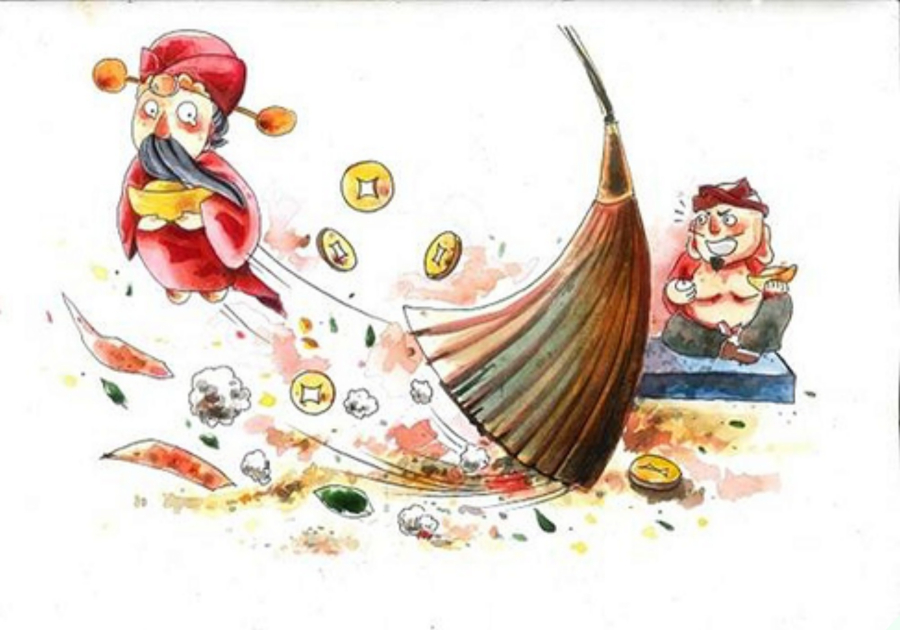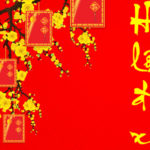Only a few days left until the new year’s bell rings. According to ancient wisdom, if the first day of the new year is peaceful, the whole year will be smooth sailing. That’s why there are many superstitions and taboos on the first day of the new year in order to bring happiness and good luck to the family throughout the year.
1. No sweeping
On the last days of the year, everyone is busy cleaning and sweeping the house, but on the first day of the Lunar New Year, even if the floor is dirty and messy, sweeping is prohibited. This is one of the taboos of the new year.
The reason is that according to tradition, the Vietnamese believe that sweeping the house can sweep away fortune and luck from the house. This is not only a blessing for the family, but also a way to show respect and expectation for a beautiful and prosperous new year.

2. No rice porridge
In daily life, rice porridge is a simple and convenient dish that appears on everyone’s table. However, on the first day of the Lunar New Year, it is advised not to drink rice porridge. The simple reason is that in the past, due to poverty and lack of food, people had to substitute rice with porridge. Therefore, drinking rice porridge is considered a symbol of poverty in the family.
Instead, on the first day of the Lunar New Year, people tend to eat dishes that have good meanings, symbolizing abundance, prosperity, and unity, such as chung cake, which symbolizes unity and fullness. Boiled chicken symbolizes warmth, fullness, and the desire for a fulfilling new year. Gio cha is a dish that symbolizes wealth, luxury, and brings prosperity and luck to the house. This is also a way for people to express their expectations for luck and happiness in the coming year.
3. No laundry
Washing clothes is a normal daily activity, but the elderly advise against washing clothes on the first day of the Lunar New Year. According to folk beliefs, “washing clothes” symbolizes “washing away” fortune and luck in the house. Therefore, people choose not to wash clothes on the first day of the new year to preserve the blessings and prosperity for the family.
4. No hair washing
For many people, washing hair in the morning is an important ritual to start a new day. It not only cleanses the body but also brings refreshment and energy to the new day. However, on the first day of the Lunar New Year, hair washing is considered a taboo. The reason is that it is believed that washing hair can unintentionally wash away the luck and wealth of the whole year.
Clean bathing, washing away dirt and bad luck, is performed before New Year’s Eve to welcome a lucky and prosperous new year. Especially, we have the tradition of bathing with lemongrass water on the 30th to chase away bad luck. From a scientific point of view, on the first day of the Lunar New Year, the weather is cold, and people usually stay up late and wake up early. If hair washing can pose risks to health and bring bad luck during the Tet holidays. Therefore, many people choose to give up the habit of hair washing on the first day of the Lunar New Year.
5. No laziness
Tet Nguyen Dan is traditionally celebrated by staying up late on New Year’s Eve to welcome the new year. However, when the first rays of the new year shine across the earth, the elderly advise us to wake up early and not be lazy. This tradition not only welcomes the first morning of the new year but also symbolizes the commitment to work hard and have a positive attitude towards life in the new year.
Laziness is often seen as a sign of laziness, indicating a lack of energy and proactivity, lingering in the past year. To show a positive attitude towards the new year, wake up early on the first day of the new year and express the expectation for a vibrant, hardworking, and successful new year.

6. No wood chopping
In the past, most families used firewood, so chopping wood was a daily task. However, it is believed that chopping wood on the first day of the Lunar New Year symbolizes “chopping” the family’s fortune. This is something that everyone naturally wants to avoid. Moreover, in reality, chopping wood with sharp knives and axes poses many accidents and risks, especially when the family has many people and children during Tet.
Although modern life has changed, the taboos on the first day of the Lunar New Year still hold their own value and are still adhered to by people with the purpose of expressing desires and expectations for a good, safe, and prosperous new year.
Unveiling the Meaning Behind New Year’s Harvest: Tips for Having Luck in 2021
Celebrating the start of the New Year, many customs and traditions come together in a joyous expression of good fortune. From harvesting the new year’s fortune to praying for fortune and luck, the humanistic meaning behind these practices remains as relevant as ever. But what is the origin and how can we properly partake in the harvest of the new year? Read on to learn more about this fascinating custom.





































